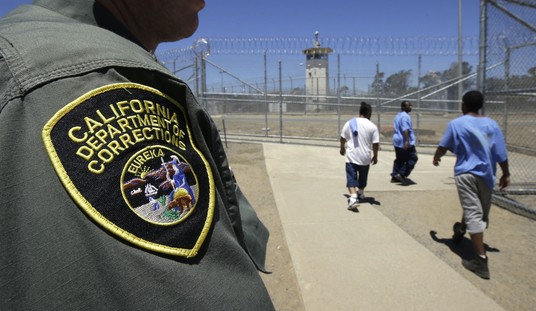This is the opposite of the truth, needless to say.
It’s almost as ludicrous as if Mitch McConnell had declared during the summer of 2016 that he’d have no regrets about holding Scalia’s SCOTUS seat open if exit polls that fall showed that his decision had driven high Democratic turnout that produced a Hillary Clinton victory.
McConnell and Pelosi are bottom-line politicians, which is why Madam Speaker was so reluctant for so long to indulge her caucus on impeachment. Each of them approach every political question by asking themselves, “Does this path increase or decrease our chances of expanding our power and making it easier to move our agenda?” For McConnell, the “agenda” is little more than confirming judges since that’s all the Senate can do, really, in an age of hyperpartisanship until it jettisons the legislative filibuster. For Pelosi it’s broader. Impeaching Trump and failing to remove him and then getting four more years of Republican veto power over Democratic legislation as a consequence would be a complete backfire from her standpoint, precisely the result she feared when she was busy this past spring steering House Democrats away from impeaching Trump over Russiagate.
Plus, don’t forget that she’s on the clock. Her pledge to her critics inside the caucus last year was that she’d serve no more than two terms as their leader. She’s almost through with serving one. Unless Democrats win the White House *and* the Senate next year, her final two years as Speaker are destined to produce more legislative roadblocks and more frustration. Doubtless Pelosi’s dream was to see her party take back total control of government in an anti-Trump landslide, have Schumer nuke what’s left of the filibuster, and then pass a raft of liberal legislation before retiring. That’s how she goes out on top. Given that Trump’s job approval has been stuck at a 43 percent for ages, the safe play for Democrats was to avoid making any sudden moves — like impeachment — before 2020 and trust that the public would tire of the Trump circus by next fall.
But then the Ukraine thing happened and individual members of her caucus started speaking up about impeachment, and the numbers in favor started to mount. She couldn’t hold them back so — again, in bottom-line fashion — she concluded that a unified caucus in favor was a smarter play than a caucus divided over the issue. So she got behind it, albeit with the caveat that they would do it quickly and get it over with, not waiting around for months to find out what key players like John Bolton and Mick Mulvaney know. She’s playing a weak hand as strongly as she can, probably expecting that the light-speed of the news cycle in the Trump era combined with the fact that the American public’s attention span is down to about six seconds means that impeachment won’t matter much either way next year. Inasmuch as it does, it might be one more small thing that gives voters who are leery of Trump a reason to say, “Okay, let’s not roll the dice again.”
If she knew for a fact, though, that proceeding further at this point would produce a second term for the president? Of course she’d pull the plug immediately. What purpose would it serve to do otherwise? Even the principled case for impeachment, that the president deserves to be called to account by the House for misconduct even if the Senate refuses to remove him for partisan reasons, doesn’t quite work. If Trump is tried and acquitted, the precedent will be set that leaning on a foreign power for help against a domestic political opponent isn’t a high crime or misdemeanor that justifies removal. Future Houses probably won’t even attempt to impeach on those grounds. Some accountability.
Senate Republicans (or at least most Senate Republicans) are also going to take a bottom-line approach to impeachment, though. This is politically risk for them too, after all, even if it’s a cinch at this point that support for impeachment won’t climb to heavy-majority levels. They’re worried about surprises at Trump’s trial and they’re aware that the evidence produced might end up tilting a few swing voters away from them. So while bombthrowers in the House like Doug Collins are eager to see the likes of Adam Schiff and Joe Biden testify, Senate Republicans — including Lindsey Graham — sound inclined to keep the conveyor belt moving at a trial by delivering a quasi-respectful hearing of the facts that are already known and then moving on to acquittal. Graham and others are blaming that on the fact that they need 51 votes to call witnesses and the likes of Collins, Romney, and Murkowski might not be willing to let the trial turn into a circus. But really, McConnell and Graham don’t want a circus either. It’s too unpredictable. Trump may crave the TV drama but Senate GOPers just want to escape from this nightmare with as little electoral damage as possible. That means a boring trial, not a show.
So, no, contra Judge Nap, Trump’s not going to testify himself. Certainly not if elder statesmen like Chuck Grassley have any say in it.
In lieu of an exit question, here’s a fun WaPo story gaming out how the many Democratic senators running for president this year are going to balance their Senate duties with their need to campaign in the early states during Trump’s trial. Will we see AOC on the trail in Iowa as Bernie’s chief stand-in? She might as well get some practice in before her own presidential run in 2024.
House Speaker Nancy Pelosi says she’d have no regrets if exit polls showed in 2020 that pursuing impeachment helped reelect President Trump: “This isn’t about politics at all. This is about patriotism… honoring our oath of office.” #PelosiTownHall https://t.co/HEkY9eNXcY pic.twitter.com/GVACBgEtRr
— The Lead CNN (@TheLeadCNN) December 6, 2019








Join the conversation as a VIP Member